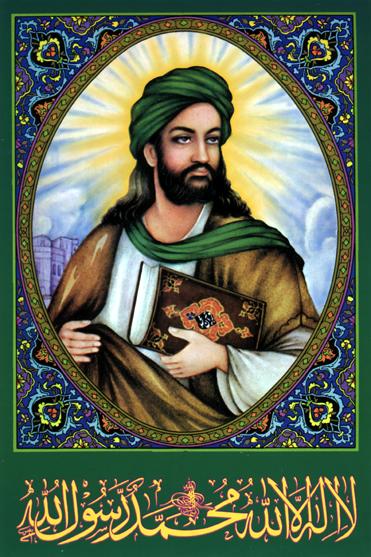Shri Guru Nanak
Shri Guru Nanak
Guru Nanak
lived in a time when moral degradation, anarchy and religious fanaticism had
brought India towards a dark period of unrighteousness and instability. But thanks to the purity of his life and to
his great compassion, Guru Nanak could join his communities Indus and Muslims,
who he welcomed by simply calling them Sikh (i.e. true seeker).
Guru Nanak was born in 1469 AD in Lahore, Pakistan, and voiced an interest in divine subjects at an early age. Nevertheless his father Mehta Kalu tried to turn Nanak's mind towards worldly matters. For example, once he told his son to work on their land, but Nanak did not pay any attention to this work and instead meditated in the fields. As Mehta Kalu rebuked him for his idleness, Guru Nanak replied,
«I am not idle I am busy in guarding my own fields. »
Kalu asked him, «Where are your fields?»
Guru Nanak
replied, «My body is a field. My mind is the ploughman. Righteousness is the
cultivation. Modesty is water for irrigation. I have sown the field with the
seed of the sacred Name of the Lord. Contentment is my field's harrow. Humility
is its hedge. The seeds will germinate into a good crop with love and devotion.
Fortunate is the house in which such a crop is brought! O sir, mammon will not
accompany us to the next world. It has infatuated the whole world, but there
are few who understand its delusive nature.»
Guru Nanak
married Mata Sulakhni, had two sons and was dedicated to his family for some
years. As people began to recognise divine qualities in Guru Nanak they
encouraged and supported Guru Nanak to study and travel. So at the age of
around 30 he started his wanderings throughout India and beyond, travelling as
far as Sri Lanka, Myanmar, Mecca and Medina, Turkey, Arabia, Baghdad and
Siam. He held controversies with Pundits
and Mohammedan priests, debated with the Pandas of Gaya, Hardwar and other
places of pilgrimage.
Guru Nanak
enjoined on all people to live righteously and with brotherly love and
hospitality. But he was also a reformer. He attacked the corruptions in society
and strongly protested against formalism and ritualism. He carried the message
of peace and of love for everybody. He was very liberal in his views. He did
not observe the rules of caste. He tried his level best to remove superstitions
of the people. He preached purity, justice, goodness and the love of God.
After years
of wandering and preaching, Guru Nanak settled down with his family at
Kartarpur and died on 22 September 1539 at the Age of 69.
Teachings
His teachings are all collected and preserved
in the Adi Granth, the sacred book of the Sikhs.
True love and
devotion towards God
In
particular he gave great importance to heartfelt prayer: “nothing can be
achieved by man without divine favour”. But what should we really ask of God if
not His complete love? He said: “Love God as the lotus loves water, as the bird
Chatak loves rain, as the wife loves her husband. Make divine love thy pen and
thy heart the writer. If you repeat God's Name, you live; if you forget it, you
die. Open your heart to Him”. “A pure heart full of intense devotion is a
mosquee that the Almighty Creator of all makes His home”. “The silence of
devotion opens the door that leads to the presence of the Great Beloved”.
Description of our evolutionary steps
In Japji (mystic poems uttered by the Master), Guru Nanak
has given a vivid and concise description of the stages through which man must
pass in order to reach the final resting place or abode of eternal bliss. There
are five stages or Khandas:
Dharm Khand or ‘The Realm of Duty’: All must do this duty properly, must tread the
path of righteousness and will be judged according to their actions.
Gyan Khand or ‘The Realm of Knowledge’: Where the spirit of divine knowledge
reigns. The aspirant does his duty with intense faith and sincerity, has the
knowledge now, that only by doing his duty in a perfect manner, he can reach
the abode of bliss or the goal of life.
Sharam Khand or ‘The Realm of Ecstasy’: There is spiritual rapture. There is beauty.
The Dharma has become a part of one's own nature and an ingrained habit. It is
no more a mere matter of duty or knowledge.
Karam Khand or ‘The Realm of Power’: the God of power rules over this realm. The
aspirant acquires power. He becomes a mighty hero. He becomes invincible. The
fear of death vanishes.
Sach Khand or ‘The Realm of Truth’: the formless One reigns. Here the aspirant
becomes one with God. He has attained Godhead, transmuted himself into
Divinity, and attained the goal of his life. He has found out his permanent
resting place. Now ends the arduous journey of the soul.





Comments
Post a Comment